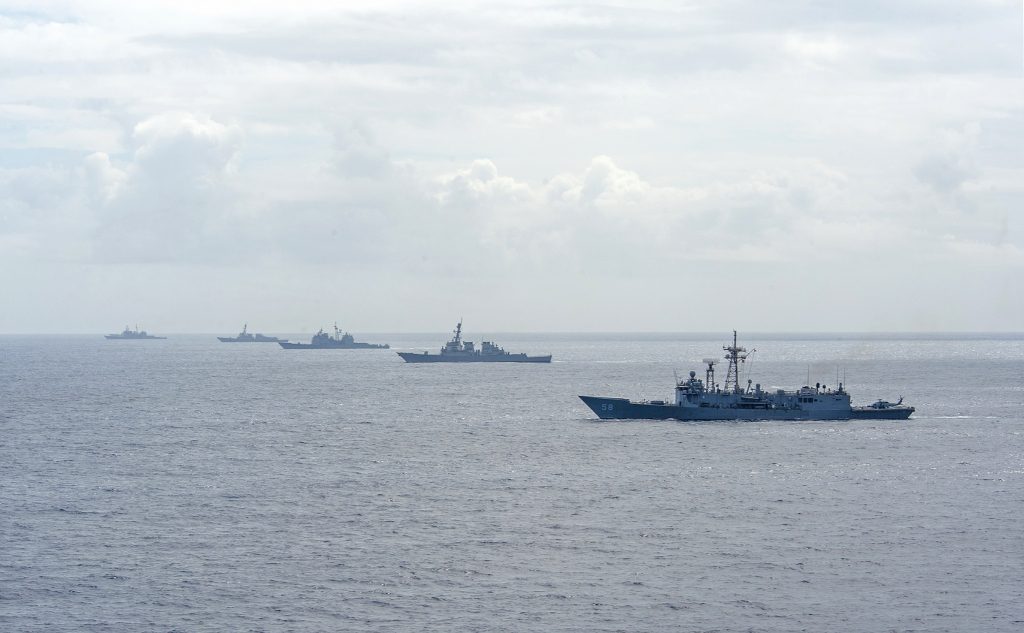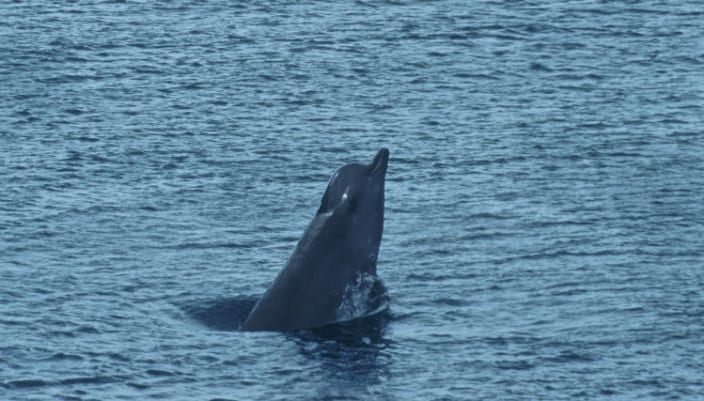The IWDG made two requests to government in relation to planned and ongoing military Russian exercises outside the EEZ. we received no acknowledgment of either letter nor evidence that our concerns were raised.
This is disappointing. we present both letters here to keep interested parties abreast of our efforts to protect Irish whales and dolphins and their habitats.
One letter was sent to Minister Charlie Flanagan, Chair of the Oireachtas Foreign Affairs Committee in an email on 2 February 2022
Dear Mr Flanagan,
Dear Minister Coveney, Minister of State Noonan,
The Irish Whale and Dolphin Group, (IWDG), very much welcome your recent efforts in the context of the proposed military exercises by the Russian Federation. However, while the exercises are now to be undertaken outside of the Irish Exclusive Economic Zone, (EEZ) they still present a serious risk to Irish interests. This is particularly through the impact to deep-diving whale species in our waters consequent on the use of sonar activity which still can travel hundreds of miles, and the effects of which Minister Noonan highlighted in his letter1 to you Minister Coveney last week. The IWDG therefore have two requests in respect of this:
a) The need for further diplomacy with the Russian Federation in respect of these exercises, and to log the use of active sonar during these exercises
b) Leveraging the Naval Service to collect key scientific information on sonar activity around these exercises to inform future policy, and scientific knowledge on environmental effects.
We ask you to urgently consider these requests and respond to us, given the imminent nature of the exercises, and set out the justification given the legal, environmental and economic interests served below.
Ongoing diplomacy to seek the cancellation or significant further modification of the exercises.
While the IWDG clearly values whales for their intrinsic value, we are conscious of what a valuable economic asset they are also to our nation. Senior economists in the International Monetary Fund have attempted to quantify the value in terms of carbon sequestration and in supporting marine ecosystems, Minister Coveney, we do not need to highlight to you the Marine policy document “Harnessing our Ocean Wealth” given your involvement in it. But if there was ever a case for supporting the wealth creation that policy document highlighted, it is in protecting whales in our water, given their fundamental role in marine health and marine life. The now widely reported sonar incident in 2018 in Irish waters could thus be conservatively estimated to have cost Ireland millions directly, not to mention the un-estimated indirect losses to fishers and our economy. This is given the potential loss of up to 1000 individuals which we estimated were potentially lost in that event in our submission to the Commission on the Defence Forces consultation on the Defence Forces last year4
Therefore IWDG are appealing to you to:
A) Continue to press for the cancelling of these exercises in the first instance, or failing that to:
B) Seek further modification to them and for a much shorter duration than the 5 days proposed, and ideally for them to be conducted at a considerable distance from our EEZ.
In summary the territorial boundary of the EEZ does not prevent the damaging environmental and economic effects here, and Ireland’s interests are still at stake. Request to the Irish Naval Service to assist in collation of data around this exercise to inform scientific research and future Irish policy.
The white paper on Defence outlines a single agency approach and the Naval Service as our principal sea-going agency, and Ministers and Agencies can and do request the assistance of the Naval Service in a whole range of matters including data collection.
Minister Noonan you will be aware of the duties under EU law to not only protect species listed under Annex IVa of the Habitats Directive, (thus including all our whales, dolphins and porpoises), but we are also bound to monitor effects on them. In the context of the exercises and duties which the Naval Service will be undertaking, it would be immensely valuable for them to collect acoustic and other visual data of the effects on whales. This request would have minimal impact on Irish ships operations and can be conducted very easily by a ship on routine patrol in the area.
If useful and appropriate, the IWDG would be delighted to assist in advising on that data collection, and also have equipment devices capable of listening for and recording sonar and other sound sources, including a towed hydrophone, which would be invaluable scientific and public service for us to have the NS trial. This information can help inform not just scientific knowledge but our future policies. We therefore look forward to a positive response, at your earliest convenience. The provision of the necessary equipment and any guidance on its use can be provided by the IWDG in any Irish port as may be required.
Should we find ourselves in the situation where these exercises do go ahead, this is a unique opportunity for which we have both a legal obligation to collect scientific information, and a very clear
economic imperative, and clearly one where there is huge public interest and focus. Clearly there is a need to expedite the advance a request to the Naval Service to ensure this
information is collected at the earliest possible juncture, as it is likely sonar impacts are already occurring, and while it remains unclear if other diplomatic dialogs will result in a positive outcome.
In conclusion, we request your urgent consideration and response on these matters, and trust you will consider them favourably.
Yours sincerely


